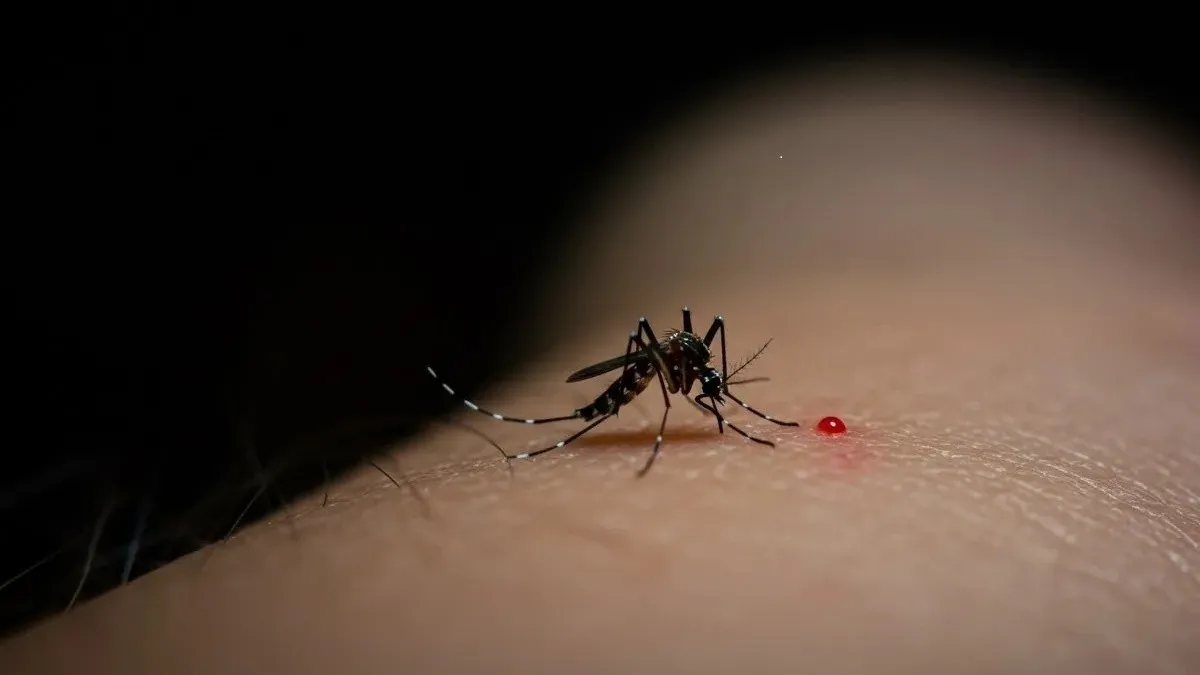Early identification of symptoms such as persistent vomiting or severe abdominal pain can save lives from this mosquito-borne disease.
Dengue fever remains a latent threat. Although in most cases the infection manifests itself mildly, specialists warn that it can develop into its most dangerous form: severe dengue fever, formerly known as dengue hemorrhagic fever. This complication can not only affect vital organs but also put the patient’s life at risk.
According to the national epidemiological bulletin, 7,501 cases of dengue fever had been confirmed in the country as of week 34, a figure that reflects the need to strengthen prevention and recognize warning signs early.
Doctors no longer use the term ” dengue hemorrhagic fever ” officially, but they do distinguish between mild and severe dengue. According to the Mayo Clinic and an analysis published in Clinical Medicine, the most characteristic feature of severe dengue is the so-called “plasma leak,” a process in which blood vessels are damaged and allow fluids to escape.
This condition can cause dengue shock syndrome (DSS), manifested by a weak pulse, low blood pressure, and nosebleeds. In the most critical cases, the virus can affect the liver, heart, or kidneys, increasing the risk of mortality. Furthermore, having previously suffered from the infection increases the likelihood of developing this severe form during a second infection, according to MedlinePlus.
Dengue symptoms and warning signs
The World Health Organization (WHO) explains that dengue fever goes through three phases: initial, critical, and recovery. In its early stages, the most common signs are fever up to 40 degrees Celsius, severe pain behind the eyes, muscle and joint discomfort, skin rashes, and nausea or vomiting.
The Pan American Health Organization (PAHO), however, details that symptoms of severe dengue include:
- Constant, sharp abdominal pain.
- Repeated vomiting (more than three in one hour or four in six hours).
- Bleeding gums, nose, vomiting, or stool.
- Difficulty breathing or rapid breathing.
- Changes in mental status such as drowsiness, irritability, or extreme fatigue.
What to do if you suspect dengue
When there are no warning signs, the WHO recommends maintaining adequate hydration with IV fluids, water, or broth; controlling fever with paracetamol; and avoiding medications such as aspirin or ibuprofen, which increase the risk of bleeding. It is also essential to use repellents and mosquito nets to break the chain of transmission.
If symptoms of severe dengue develop, experts emphasize that immediate hospital care is essential. Treatments include intravenous hydration under medical supervision, blood transfusions in cases of hemorrhage, and, in cases of shock, intensive care to preserve the function of vital organs, as indicated by the National Center for Disease Prevention and Control (CDC).
Dengue, specialists remind us, can escalate in a matter of hours. Recognizing its early symptoms and seeking immediate medical attention can make the difference between a favorable recovery and a fatal outcome.























+ There are no comments
Add yours